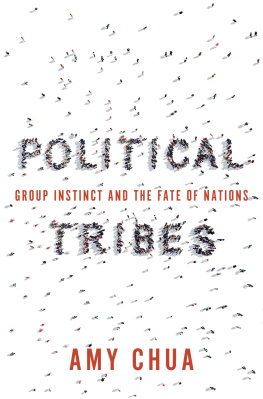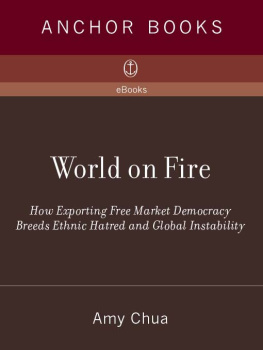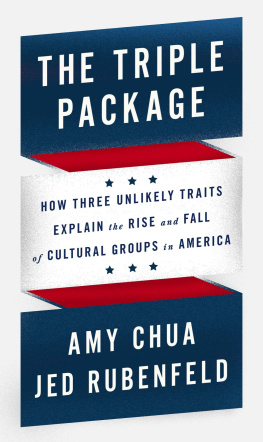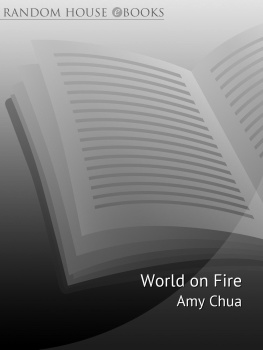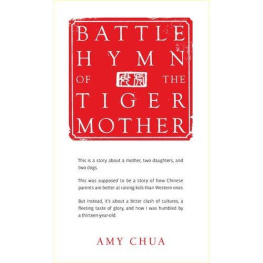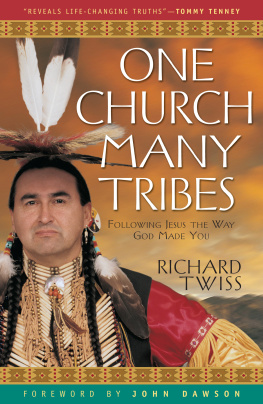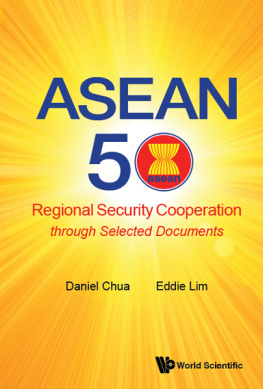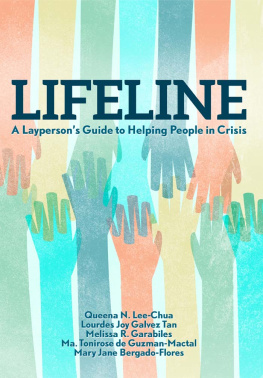Amy Chua - Political Tribes: Group Instinct and the Fate of Nations
Here you can read online Amy Chua - Political Tribes: Group Instinct and the Fate of Nations full text of the book (entire story) in english for free. Download pdf and epub, get meaning, cover and reviews about this ebook. year: 2018, publisher: Bloomsbury, genre: Politics. Description of the work, (preface) as well as reviews are available. Best literature library LitArk.com created for fans of good reading and offers a wide selection of genres:
Romance novel
Science fiction
Adventure
Detective
Science
History
Home and family
Prose
Art
Politics
Computer
Non-fiction
Religion
Business
Children
Humor
Choose a favorite category and find really read worthwhile books. Enjoy immersion in the world of imagination, feel the emotions of the characters or learn something new for yourself, make an fascinating discovery.
Political Tribes: Group Instinct and the Fate of Nations: summary, description and annotation
We offer to read an annotation, description, summary or preface (depends on what the author of the book "Political Tribes: Group Instinct and the Fate of Nations" wrote himself). If you haven't found the necessary information about the book — write in the comments, we will try to find it.
Political Tribes: Group Instinct and the Fate of Nations — read online for free the complete book (whole text) full work
Below is the text of the book, divided by pages. System saving the place of the last page read, allows you to conveniently read the book "Political Tribes: Group Instinct and the Fate of Nations" online for free, without having to search again every time where you left off. Put a bookmark, and you can go to the page where you finished reading at any time.
Font size:
Interval:
Bookmark:

The Triple Package: How Three Unlikely Traits Explain the Rise and Fall of Cultural Groups in America (with Jed Rubenfeld)
Battle Hymn of the Tiger Mother
Day of Empire: How Hyperpowers Rise to Global Dominanceand Why They Fall
World on Fire: How Exporting Free Market Democracy Breeds Ethnic Hatred and Global Instability

PENGUIN PRESS
An imprint of Penguin Random House LLC
375 Hudson Street
New York, New York 10014
penguin.com
Copyright 2018 by Amy Chua
Penguin supports copyright. Copyright fuels creativity, encourages diverse voices, promotes free speech, and creates a vibrant culture. Thank you for buying an authorized edition of this book and for complying with copyright laws by not reproducing, scanning, or distributing any part of it in any form without permission. You are supporting writers and allowing Penguin to continue to publish books for every reader.
Excerpt from Let America Be America Again from The Collected Poems of Langston Hughes, edited by Arnold Rampersad with David Roessel, Associate Editor, copyright 1994 by the Estate of Langston Hughes. Used by permission of Alfred A. Knopf, an imprint of the Knopf Doubleday Publishing Group, a division of Penguin Random House LLC. All rights reserved.
Poems by Ahlam al-Nasr, from Battle Lines by Robyn Creswell and Bernard Haykel/The New Yorker Conde Nast. Used with permission.
ISBN: 9780399562853 (hardcover)
ISBN: 9780399562860 (e-book)
ISBN: 9780525559047 (export edition)
Version_1
For
Mom and Dad
Sophia and Lulu
Coco and Push
and Jed
Introduction
Humans are tribal. We need to belong to groups. We crave bonds and attachments, which is why we love clubs, teams, fraternities, family. Almost no one is a hermit. Even monks and friars belong to orders. But the tribal instinct is not just an instinct to belong. It is also an instinct to exclude.
Some groups are voluntary; some are not. Some tribes are sources of joy and salvation; some are the hideous product of hate mongering by opportunistic power seekers. But once people belong to a group, their identities can become oddly bound with it. They will seek to benefit their group mates even when they personally gain nothing. They will penalize outsiders, seemingly gratuitously. They will sacrifice, and even kill and die, for their groups.
In many parts of the world, including the regions of greatest national security interest to the United States, the group identities that matter most are ones that Americans are often barely aware of. They are not national, but ethnic, regional, religious, sectarian, or clan based.
In our foreign policy, for at least half a century, we have been spectacularly blind to the power of tribal politics. We tend to view the world in terms of territorial nation-states engaged in great ideological battlesCapitalism versus Communism, Democracy versus Authoritarianism, the Free World versus the Axis of Evil. Blinded by our own ideological prisms, we have repeatedly ignored more primal group identities, which for billions are the most powerful and meaningful, and which drive political upheaval all over the world. This blindness has been the Achilles heel of U.S. foreign policy.
Take the Vietnam War, arguably the greatest and most humiliating military defeat in the history of the United States. Its by now well known that we underestimated the extent to which the Vietnamese people were fighting for national independence, as opposed to Cold War Marxism. But heres something most Americans, experts and novices alike, dont know, not even today. Inside Vietnam, a deeply resented 1 percent Chinese minority historically controlled as much as 70 to 80 percent of the countrys commercial wealth. Thus, a hugely disproportionate number of Vietnams capitalists were ethnic Chinese, despised by the Vietnamese, both northern and southern.
Because we completely missed the ethnic side of the conflict, we failed to see that virtually every procapitalist step we took in Vietnam was guaranteed to inflame popular resentment. If we had actively wanted to turn the Vietnamese people against us, we could hardly have come up with a better formula.
This is part of a consistent pattern. To give just one more fateful example: on the eve of the Iraq War, the Washington establishment was aware of a divide between Sunnis and Shias, but repeatedly minimized its significance. At the same time, we failed to understand the centrality of Iraqs tribal structures and how they were key to where Iraqi loyalties would fall. As former Secretary of State Condoleezza Rice acknowledged in 2017, We didnt probably understand fully the role of the tribes. American policy in Iraq was based on the conviction that ethnic, tribal, and sectarian divisions would dissipate in the face of democracy and market-generated wealth. In President George W. Bushs words, freedom and democracy will always and everywhere have greater appeal than the slogans of hatred. Instead, Iraq descended into a maelstrom of escalating conflict and violence from which it has still not recovered.
A handful of critics had warned of this danger. I was among them. In 2003, in my book World on Fire, I urged caution, warning that in Iraq everythingeven freedom and wealthhas ethnic and sectarian ramifications. Because Iraqs Shias formed a 60 percent majority long oppressed by Saddam Husseins reviled Sunni Baathist regime, I cautioned that democracy could actually catalyze historic enmities, with elections producing not a unified Iraq but rather a sectarian Shia government that excluded and retaliated against the Sunnis. These circumstances would be ripe for the rise of powerful fundamentalist movements that are intensely anti-American. Unfortunately, this precise scenario unfolded.
Domestically as well, elites in the United States have either not cared about or been remarkably oblivious to the group identities that matter most to large segments of ordinary Americans, including people they are supposedly trying to help.
Occupy Wall Street, for example, was a movement intended to help the poorbut which did not actually include the poor. On the contrary, it was overwhelmingly driven and populated by the relatively privileged. Its not just that working-class Americans did not participate in Occupy; many, if not most, of them intensely dislike and spurn activist movements. As a student from rural South Carolina put it, I think protesting is almost a status symbol for elites. Thats why they always post pictures on Facebook, so all their friends know theyre protesting. When elites protest on behalf of us poor people, its not just that we see them as unhelpful; it seems they are turning us, many of whom have a great deal of pride, into the next meme. We dont like being used as a prop for someone elses self-validation.
For a blast of irony, contrast Occupy Wall Street with a movement that actually is enormously popular among Americas have-nots and have-lesses. The prosperity gospel is one of the fastest-growing movements in the United States. It teaches that being rich is godly and that God will make people rich if they pray (and tithe) correctly. The number of poor and working-class African and Hispanic Americans who belong to prosperity churches is growing exponentially. Three out of four Hispanic Christians in the United States believe that God will grant financial success and good health to all believers who have enough faith. A Mexican American student of minewhose family members are now in danger of being deported by the Trump administrationrecently wrote to me: In my opinion, the Prosperity Gospel explains how much of my Hispanic family can be anti-Obama and pro-Trump, despite that being so obviously against their self-interest. Its a coping mechanism for poor people who feel hopeless in this world. Just a few weeks ago, my mom sent me a video of one of her favorite pastors snapchatting from Trumps inaugural ball. My mom was so excited to see Trump welcoming in men she considers to be holy. For me, this is frustrating to no end.
Font size:
Interval:
Bookmark:
Similar books «Political Tribes: Group Instinct and the Fate of Nations»
Look at similar books to Political Tribes: Group Instinct and the Fate of Nations. We have selected literature similar in name and meaning in the hope of providing readers with more options to find new, interesting, not yet read works.
Discussion, reviews of the book Political Tribes: Group Instinct and the Fate of Nations and just readers' own opinions. Leave your comments, write what you think about the work, its meaning or the main characters. Specify what exactly you liked and what you didn't like, and why you think so.

